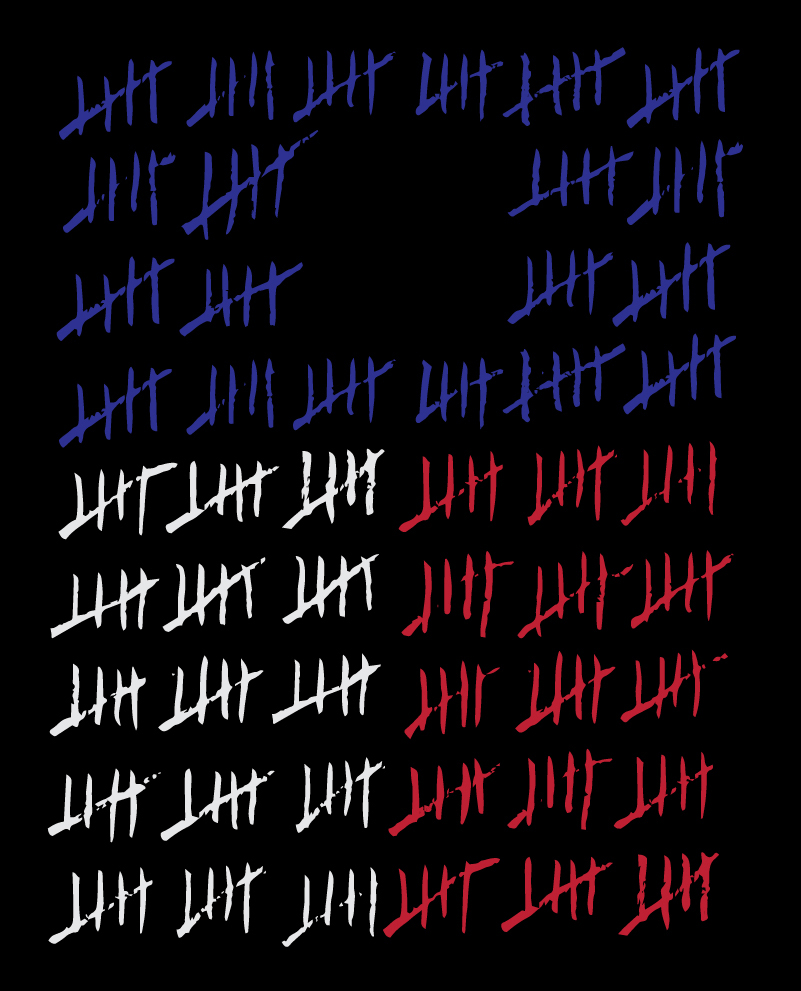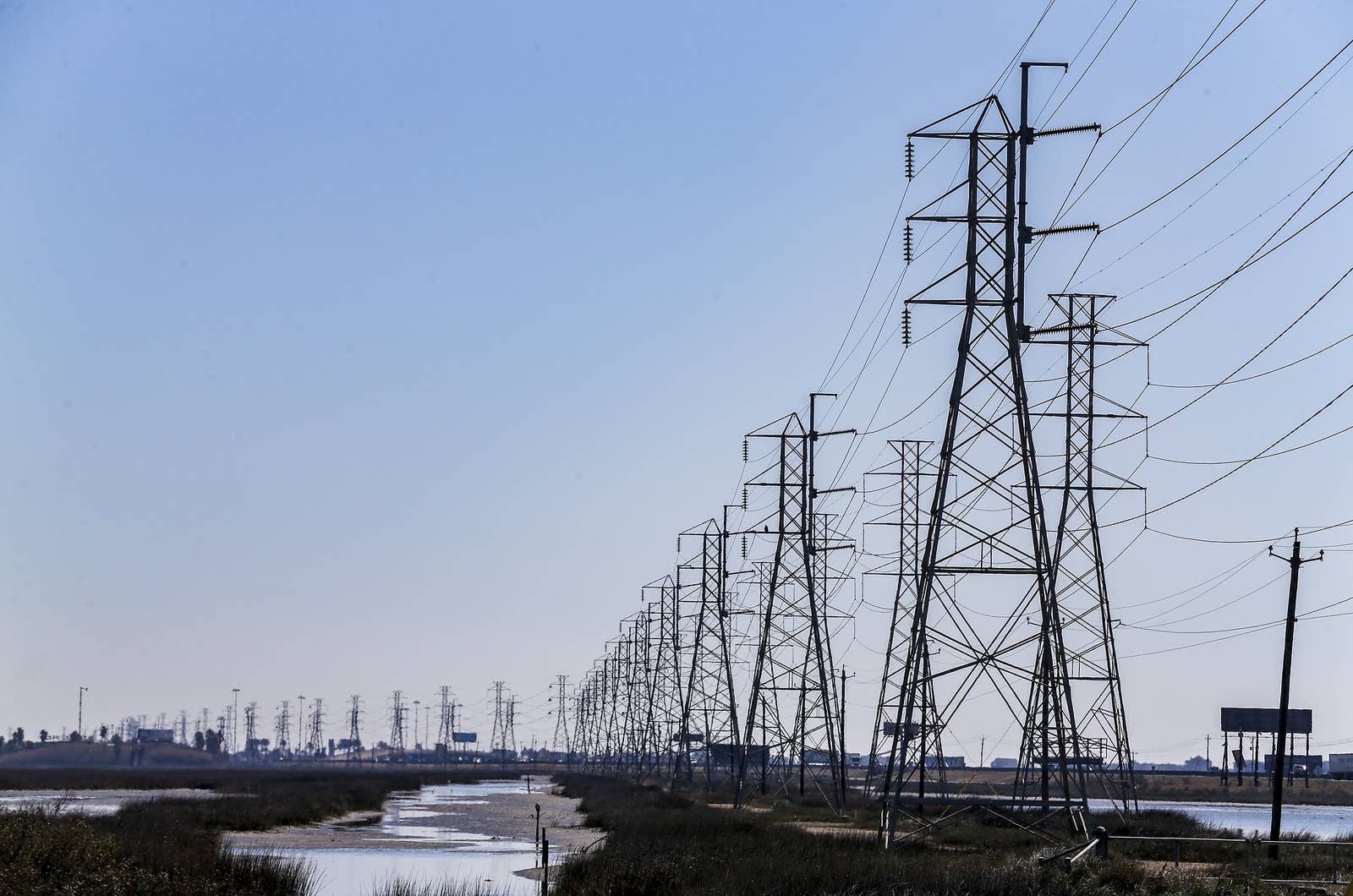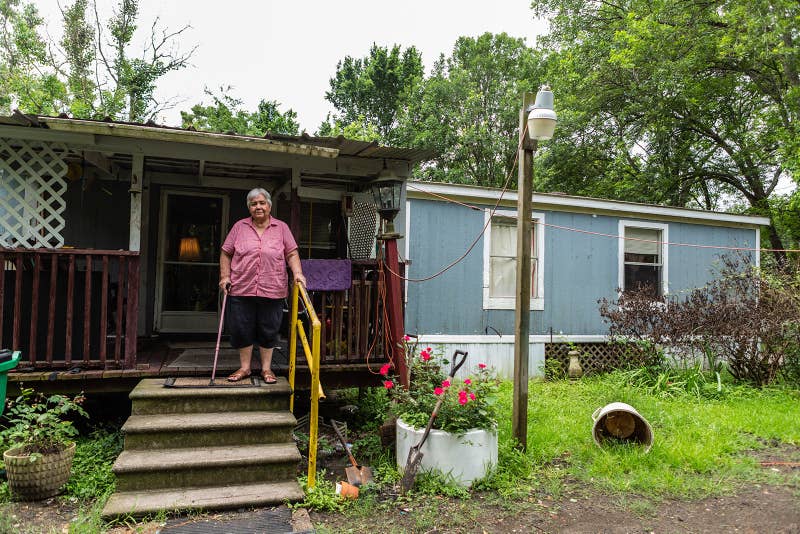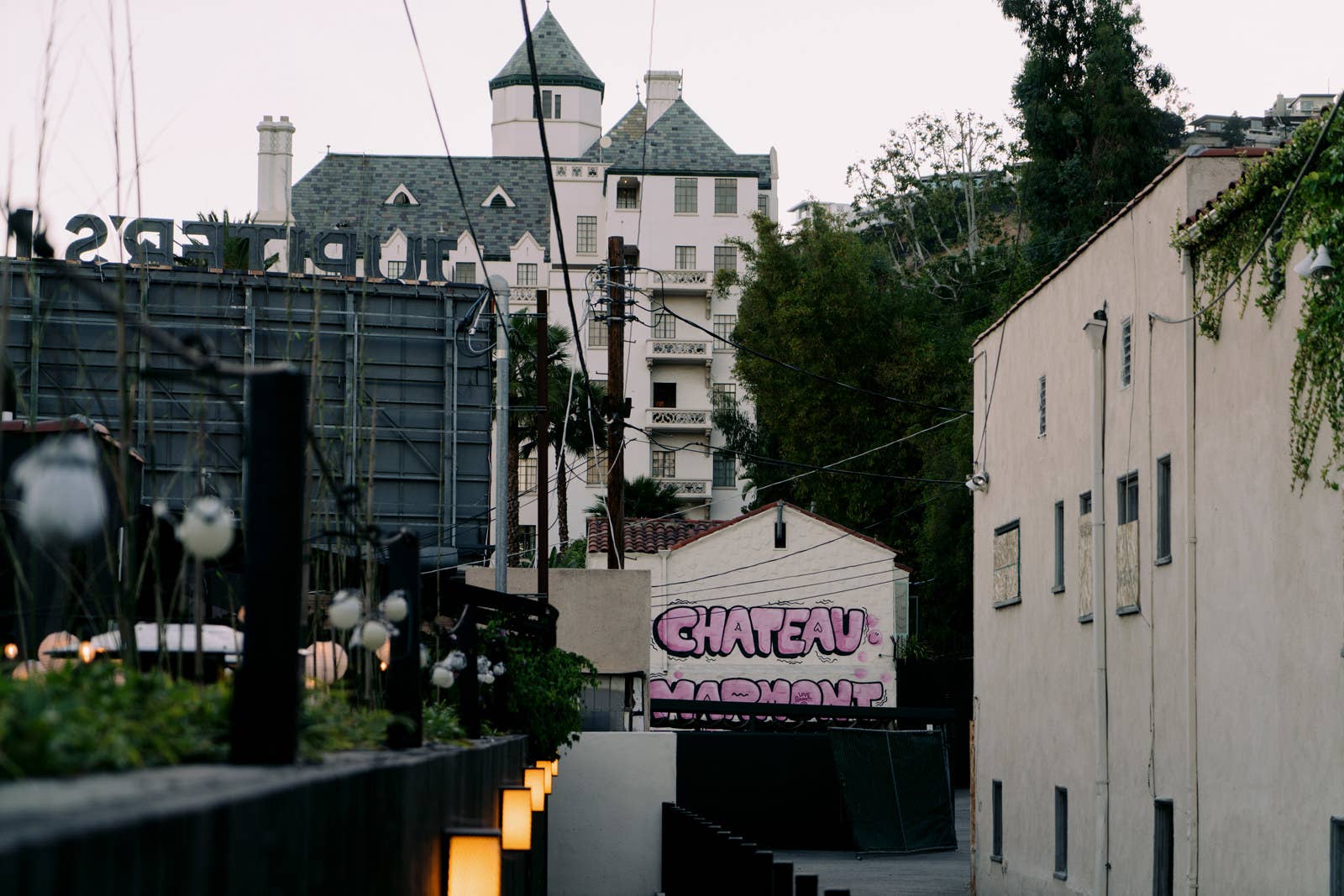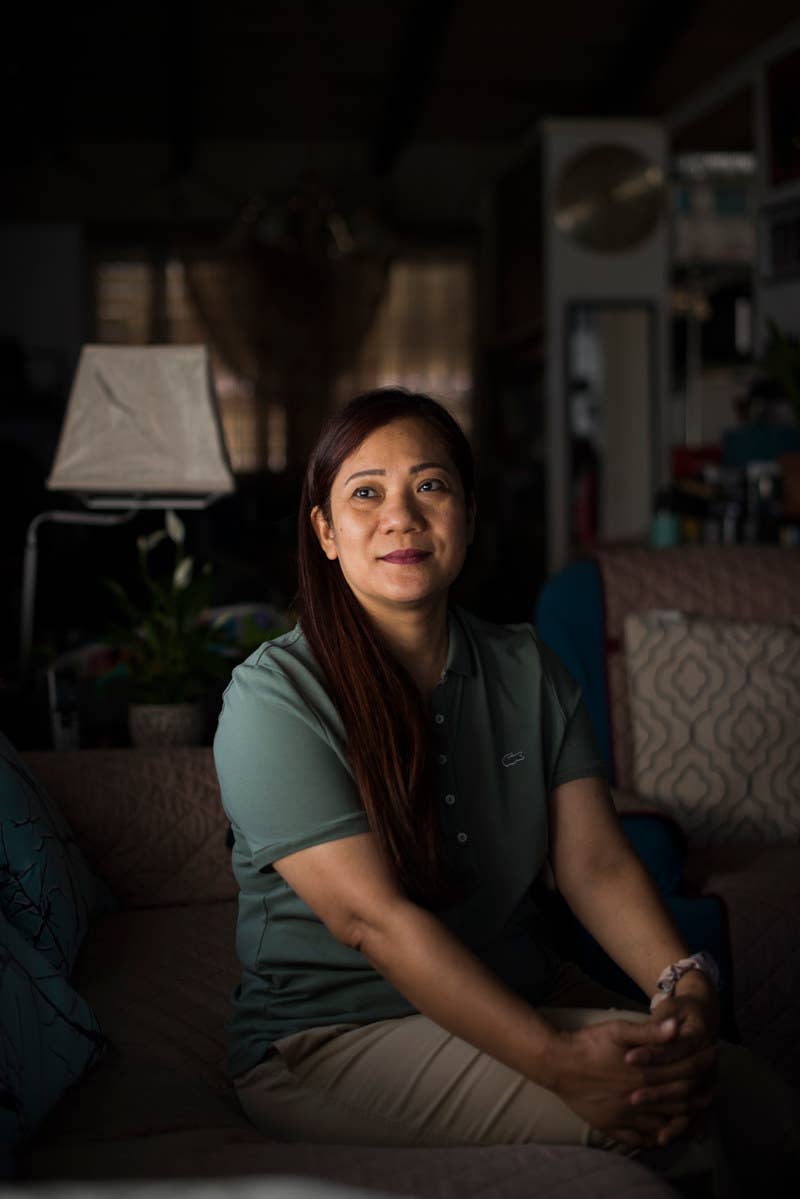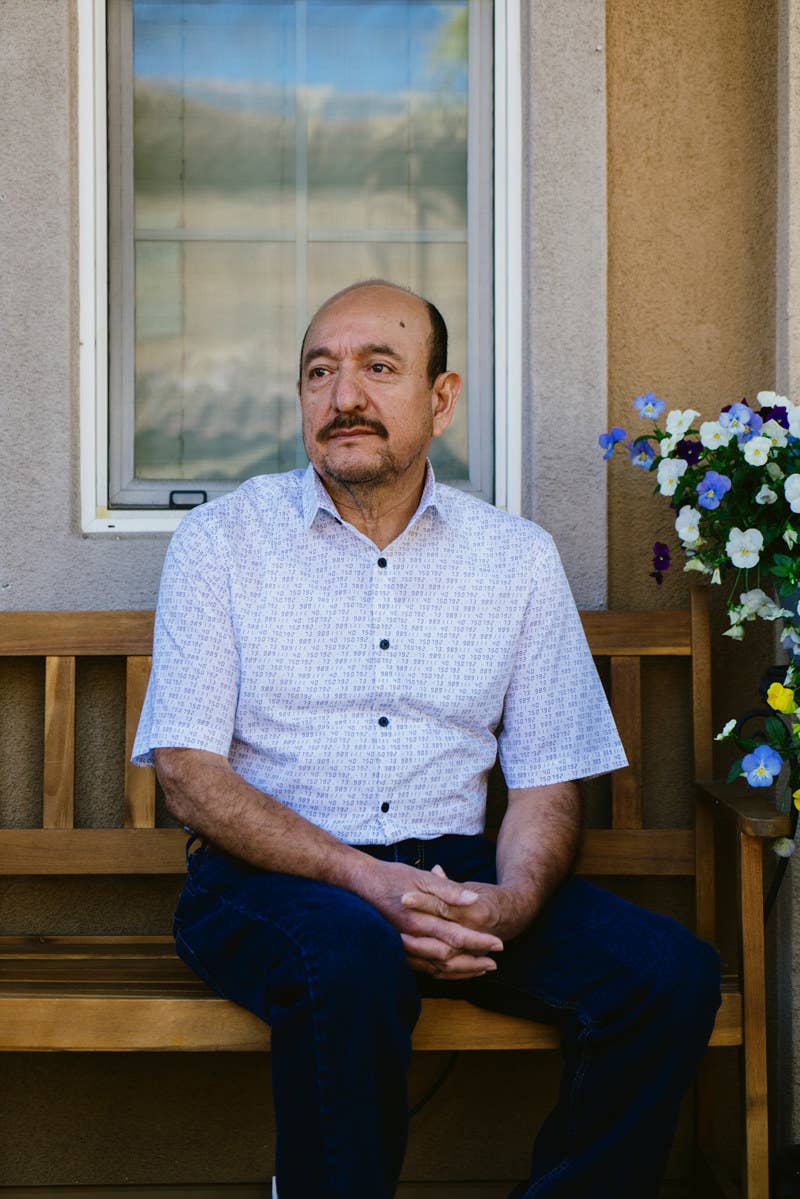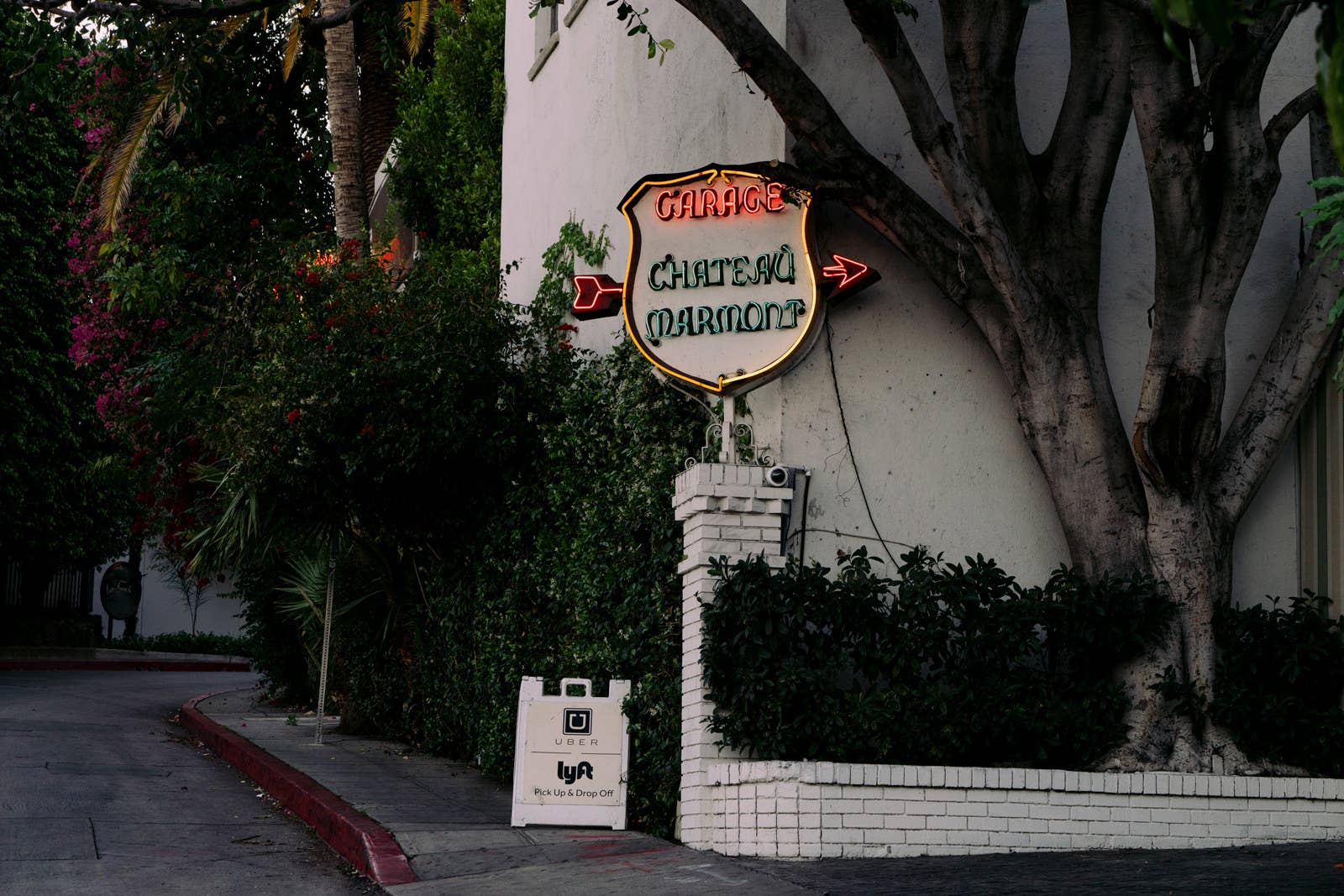"Wilder was a young journalist, unnecessarily harmed by the AP’s handling and announcement of its firing of her."
Tasneem Nashrulla BuzzFeed News Reporter
Last updated on May 24, 2021
Last updated on May 24, 2021

Angel Mendoza Emily Wilder
More than 100 Associated Press employees have criticized the way the news organization fired a young journalist last week after a conservative "smear campaign" over her pro-Palestinian activism in college.
In the open letter published Monday, AP staffers from across the world demanded more clarity from the company about why Emily Wilder, 22, was fired as a news associate in Phoenix only three weeks into her job.
"Wilder was a young journalist, unnecessarily harmed by the AP’s handling and announcement of its firing of her," the staffers said in the letter. "We need to know that the AP would stand behind and provide resources to journalists who are the subject of smear campaigns and online harassment."
Twitter: @kat__stafford
In a viral Twitter thread last week, the Stanford College Republicans branded Wilder, who is Jewish, as an "anti-Israel agitator" by highlighting her old social media posts critical of Israel and her participation in pro-Palestinian groups and rallies during her time at Stanford.
Their tweets were amplified by several conservative news outlets as well as Republican lawmakers like Sen. Tom Cotton, who raised questions about AP's objectivity in covering Israel and Palestinian territories.
The AP fired Wilder on Wednesday despite an editor initially assuring her that she would not face any recrimination for her old social media posts, she said.
According to Wilder's termination letter, which she shared with BuzzFeed News, her old posts prompted the company to review her social media activity. In a statement to BuzzFeed News, the AP said that she was fired for violating the company's social media policy "during her time at AP," but they did not specify the offending posts either to her or to the staff.
The staffers said AP's lack of communication after Wilder's firing "gives us no confidence that any one of us couldn’t be next, sacrificed without explanation."
The employees noted that interest groups involved in targeting Wilder were "celebrating their victory and turning their sights on more AP journalists."
"Once we decide to play this game on the terms of those acting in bad faith, we can’t win," the letter said.
Responding to the letter Monday, AP spokesperson Lauren Easton said, "The Associated Press looks forward to continuing the conversation with staff about AP’s social media policy."
Easton appeared to refute some aspects of the letter, saying that the company's news leadership sent a note about Wilder's termination to its global news staff on Saturday and that AP "did not choose to name Emily Wilder publicly, as the letter states."
Easton also noted that AP's social media policy is negotiated with the News Media Guild which represents its US news staffers.
"Our News Values and Principles, including our social media guidelines, exist to ensure that the comments of one person cannot jeopardize our journalism or the journalists who are covering the story," Easton said.
Wilder did not respond to a request for comment about the letter.
In their letter, AP staffers said the episode also prompted the public to question the credibility of AP's reporting on the Israeli–Palestinian conflict and did a disservice to their "courageous journalists in Gaza — who have already greatly suffered this month — and in Israel."
The Israeli military bombed the Gaza building housing AP's bureau and other international media organizations, without providing evidence that Hamas — the Palestinian militant group — operated there. Israeli officials gave the journalists just minutes to evacuate before destroying the building.
After her firing, Wilder and several journalists noted the disproportionate backlash against peers who publicly hold pro-Palestinian views and questioned the decision to fire employees based on newsrooms' vague social media policies governing objectivity.
"The lack of clarity on the violations of the social media policy has made AP journalists afraid to engage on social media — often critical to our jobs — in any capacity," AP staffers wrote in the letter.
They asked the AP to offer clarity about the disciplinary process used for Wilder and to specify which of her social media posts led to her termination.
Employees also demanded a commitment from AP to support any staffers "targeted by harassment campaigns" and a forum where AP journalists could discuss the best social media practices for its journalists.
"It’s important that the AP and its employees can articulate where the lines are drawn," the letter said.
In College, She Was A Pro-Palestinian Activist. The AP Just Fired Her After A Conservative "Witch Hunt."
Emily Wilder spoke with BuzzFeed News after she was fired by the Associated Press when conservatives shared her old social media posts and noted her pro-Palestinian college activism.
Tasneem NashrullaBuzzFeed News Reporter
Last updated on May 22, 2021
A 22-year-old Stanford graduate was fired by the Associated Press on Wednesday, after what she described as a "witch hunt" by conservatives who resurfaced her old social media posts critical of Israel, as well as her pro-Palestinian activism in college.
"It really felt like I got hung out to dry," said Emily Wilder, who was fired only three weeks after joining the AP as a news associate in Phoenix. The role was not a reporting position and did not involve covering international news.
A spokesperson for AP told BuzzFeed News that Wilder was dismissed for violating the company's social media policy "during her time at AP."
"We have this policy so the comments of one person cannot create dangerous conditions for our journalists covering the story," the spokesperson said.
However, Wilder told BuzzFeed News that her editors at AP refused to tell her which of her tweets or posts had violated the news agency's policies. The AP spokesperson also did not specify the offending posts.
Several journalists on Friday criticized the AP's decision to fire Wilder, noting the disproportionate backlash against peers who publicly hold pro-Palestinian views. Others were critical of firing journalists for their old college or high school tweets.
Twitter: @GlennKesslerWP
Wilder, who is Jewish, said AP's decision to fire her felt like a "convenient cover story for sacrificing me as collateral" after conservative outlets and lawmakers branded her as anti-Israel and slammed the news organization for hiring her.
Wilder, who first spoke with SF Gate on Thursday, said the "harassment campaign" against her began when the Stanford College Republicans on Monday wrote a Twitter thread branding her as an "anti-Israel agitator" and highlighting her pro-Palestinian posts and activism during her time at Stanford.
In one post shared by the group, Wilder called Sheldon Adelson, the late billionaire GOP mega-donor and close ally of Israeli Prime Minister Benjamin Netanyahu, a "naked mole rat." She also referred to conservative commentator Ben Shapiro as "a little turd" in a 2019 op-ed for the Stanford Daily.
The Twitter thread brought up her affiliations with Jewish Voice for Peace and Students for Justice in Palestine, as well as her participation in a 2017 "Return the Birthright” rally in New York.
Wilder said the Stanford College Republicans had "antagonized" her and her friends in the past over her activism in college, including a time she hosted a 2019 speech by Jewish cartoonist Eli Valley, an outspoken critic of Israel's treatment of Palestinians.
"They were holding on those screenshots for three years, I guess," Wilder said. "They're known for these kind of cheap tactics and for their sole politics really being to disrupt other people's lives."
After the tweets went viral, Wilder said she was shaken and concerned, especially after receiving a barrage of online harassment.
"Any woman in journalism understands how violent and vile those messages can become very quickly," she said.
However, she said an AP editor assured her in a phone call on Tuesday night that the organization was most concerned about the harassment she was facing and was going to take steps to address that.
Wilder said the editor told her that she would not face repercussions for her old posts and activism she was involved with in college before becoming a journalist.
During that call, she said, the editor also suggested that she should remove "Black Lives Matter" from her Twitter bio, which she did at the time.
The next day, however, things "really escalated" after her old posts were amplified by several conservative news outlets, including Fox News, and by Republican lawmakers like Sen. Tom Cotton.
In one article, the Washington Free Beacon wrote that Wilder's hire "could fuel concerns about the AP's objectivity amid revelations that the news outlet shared an office building with Hamas military intelligence in Gaza."
The AP has said Israel's army had not provided any evidence so far to support its decision to bomb the building that housed the AP's Gaza bureau and other international media organizations.
Wilder said that on Wednesday afternoon the same AP editor who had assured her that she would not face consequences for her old posts and activism called to tell her she was being terminated immediately.
According to Wilder, the editor told her that since their last conversation "new things came to light," prompting a review of her social media.
Wilder's termination letter, which she shared with BuzzFeed News, reads, "As discussed, over the last few days some of your social media posts made prior to joining AP surfaced. Those posts prompted a review of your social media activity since you began with the AP, May 3, 2021. In that review, it was found that some tweets violated AP’s News Values and Principles."
The letter recalled that during her first week at the AP, an editor had a meeting with her and "specifically spoke to you about the social media expectations of AP journalists."
"It’s paramount that journalists working for The Associated Press cover the news impartially, do not have any conflicts that could be perceived as leading to bias in reporting and on social media refrain from sharing opinions or engaging in any activity that could compromise AP’s reputation for objectivity," the letter said.
Wilder said that when she asked what posts violated the AP's policies, she did not get an answer from either her editor or the letter.
She said she did not believe any of her social media posts were egregious enough for her to be singled out and fired and that the AP should have given her a warning instead of firing her immediately.
Amid the recent surge of violence in the region, leading to more than 200 Palestinians being killed in Israeli airstrikes, Wilder said she retweeted articles about the AP building being bombed by the Israeli military and about the death toll in Gaza.
She also wrote a tweet questioning the language media outlets used while writing about Israel and Palestinian territories and how one side always gets "policed and censored."
Twitter: @vv1lder
Wilder said social media policies surrounding objectivity were "so imprecise, vague, and nebulous" that they were "haphazardly and selectively enforced and almost universally and disproportionally used against journalists of color and journalists who expressed dissent towards the state of Israel."
Wilder said that while she was heartened by the support she was getting from others, she hoped that people would recognize Palestinian journalists and journalists of color have long experienced this kind of blowback for expressing their views even when "it's totally irrelevant to your beat or your job."
Twitter: @vv1lder
In a statement posted on Twitter Saturday, Wilder said her firing is "heartbreaking as a young journalist so hungry to learn from the fearless investigative reporting of AP journalists."
"It's terrifying as a young woman who was hung out to dry when I needed support from my institution most. And it's enraging as a Jewish person — who grew up in a Jewish community, attended Orthodox schooling and devoted my college years to studying Palestine and Israel — that I could be defamed as antisemitic and thrown under the bus in the process," she wrote.
"While the last few days have been overwhelming, I will not be intimidated into silence," Wilder added. "I will be back soon.
Last updated on May 22, 2021
A 22-year-old Stanford graduate was fired by the Associated Press on Wednesday, after what she described as a "witch hunt" by conservatives who resurfaced her old social media posts critical of Israel, as well as her pro-Palestinian activism in college.
"It really felt like I got hung out to dry," said Emily Wilder, who was fired only three weeks after joining the AP as a news associate in Phoenix. The role was not a reporting position and did not involve covering international news.
A spokesperson for AP told BuzzFeed News that Wilder was dismissed for violating the company's social media policy "during her time at AP."
"We have this policy so the comments of one person cannot create dangerous conditions for our journalists covering the story," the spokesperson said.
However, Wilder told BuzzFeed News that her editors at AP refused to tell her which of her tweets or posts had violated the news agency's policies. The AP spokesperson also did not specify the offending posts.
Several journalists on Friday criticized the AP's decision to fire Wilder, noting the disproportionate backlash against peers who publicly hold pro-Palestinian views. Others were critical of firing journalists for their old college or high school tweets.
Twitter: @GlennKesslerWP
Wilder, who is Jewish, said AP's decision to fire her felt like a "convenient cover story for sacrificing me as collateral" after conservative outlets and lawmakers branded her as anti-Israel and slammed the news organization for hiring her.
Wilder, who first spoke with SF Gate on Thursday, said the "harassment campaign" against her began when the Stanford College Republicans on Monday wrote a Twitter thread branding her as an "anti-Israel agitator" and highlighting her pro-Palestinian posts and activism during her time at Stanford.
In one post shared by the group, Wilder called Sheldon Adelson, the late billionaire GOP mega-donor and close ally of Israeli Prime Minister Benjamin Netanyahu, a "naked mole rat." She also referred to conservative commentator Ben Shapiro as "a little turd" in a 2019 op-ed for the Stanford Daily.
The Twitter thread brought up her affiliations with Jewish Voice for Peace and Students for Justice in Palestine, as well as her participation in a 2017 "Return the Birthright” rally in New York.
Wilder said the Stanford College Republicans had "antagonized" her and her friends in the past over her activism in college, including a time she hosted a 2019 speech by Jewish cartoonist Eli Valley, an outspoken critic of Israel's treatment of Palestinians.
"They were holding on those screenshots for three years, I guess," Wilder said. "They're known for these kind of cheap tactics and for their sole politics really being to disrupt other people's lives."
After the tweets went viral, Wilder said she was shaken and concerned, especially after receiving a barrage of online harassment.
"Any woman in journalism understands how violent and vile those messages can become very quickly," she said.
However, she said an AP editor assured her in a phone call on Tuesday night that the organization was most concerned about the harassment she was facing and was going to take steps to address that.
Wilder said the editor told her that she would not face repercussions for her old posts and activism she was involved with in college before becoming a journalist.
During that call, she said, the editor also suggested that she should remove "Black Lives Matter" from her Twitter bio, which she did at the time.
The next day, however, things "really escalated" after her old posts were amplified by several conservative news outlets, including Fox News, and by Republican lawmakers like Sen. Tom Cotton.
In one article, the Washington Free Beacon wrote that Wilder's hire "could fuel concerns about the AP's objectivity amid revelations that the news outlet shared an office building with Hamas military intelligence in Gaza."
The AP has said Israel's army had not provided any evidence so far to support its decision to bomb the building that housed the AP's Gaza bureau and other international media organizations.
Wilder said that on Wednesday afternoon the same AP editor who had assured her that she would not face consequences for her old posts and activism called to tell her she was being terminated immediately.
According to Wilder, the editor told her that since their last conversation "new things came to light," prompting a review of her social media.
Wilder's termination letter, which she shared with BuzzFeed News, reads, "As discussed, over the last few days some of your social media posts made prior to joining AP surfaced. Those posts prompted a review of your social media activity since you began with the AP, May 3, 2021. In that review, it was found that some tweets violated AP’s News Values and Principles."
The letter recalled that during her first week at the AP, an editor had a meeting with her and "specifically spoke to you about the social media expectations of AP journalists."
"It’s paramount that journalists working for The Associated Press cover the news impartially, do not have any conflicts that could be perceived as leading to bias in reporting and on social media refrain from sharing opinions or engaging in any activity that could compromise AP’s reputation for objectivity," the letter said.
Wilder said that when she asked what posts violated the AP's policies, she did not get an answer from either her editor or the letter.
She said she did not believe any of her social media posts were egregious enough for her to be singled out and fired and that the AP should have given her a warning instead of firing her immediately.
Amid the recent surge of violence in the region, leading to more than 200 Palestinians being killed in Israeli airstrikes, Wilder said she retweeted articles about the AP building being bombed by the Israeli military and about the death toll in Gaza.
She also wrote a tweet questioning the language media outlets used while writing about Israel and Palestinian territories and how one side always gets "policed and censored."
Twitter: @vv1lder
Wilder said social media policies surrounding objectivity were "so imprecise, vague, and nebulous" that they were "haphazardly and selectively enforced and almost universally and disproportionally used against journalists of color and journalists who expressed dissent towards the state of Israel."
Wilder said that while she was heartened by the support she was getting from others, she hoped that people would recognize Palestinian journalists and journalists of color have long experienced this kind of blowback for expressing their views even when "it's totally irrelevant to your beat or your job."
Twitter: @vv1lder
In a statement posted on Twitter Saturday, Wilder said her firing is "heartbreaking as a young journalist so hungry to learn from the fearless investigative reporting of AP journalists."
"It's terrifying as a young woman who was hung out to dry when I needed support from my institution most. And it's enraging as a Jewish person — who grew up in a Jewish community, attended Orthodox schooling and devoted my college years to studying Palestine and Israel — that I could be defamed as antisemitic and thrown under the bus in the process," she wrote.
"While the last few days have been overwhelming, I will not be intimidated into silence," Wilder added. "I will be back soon.
